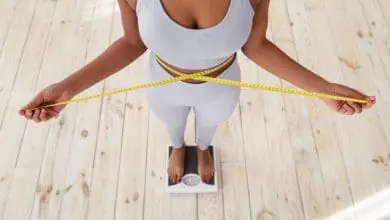Depression (major depressive disorder) explained
The material is informative and cannot replace consultation with a doctor. Before starting treatment, you must consult a doctor.
How to deal with depression?
- be aware of your condition – don’t expect to do everything as before. Make a realistic schedule.
- don’t believe your negative thoughts that make you blame yourself or feel insecure about your endeavors. This helps to relieve depression. These thoughts will disappear when the depression is gone.
- engage in activities that make you feel good or in which you have been successful.
- avoid making important life decisions while depressed. If you do have to, consult someone you trust.
- avoid alcohol and medication – both can worsen depression and cause side effects when combined with antidepressants
- physical activity helps improve mood. A good goal is 30 minutes of exercise 4-6 times a week, but even more infrequent activity is helpful.
- don’t get discouraged – treatment takes time.
How long does depression last?
It depends on the timeliness of the treatment. If left untreated, depression can last for weeks, months, or even years. The main risk in the absence of treatment is the possibility of suicide. Depression therapy works within 6 to 8 weeks, sometimes less.
Depression can usually be treated on an outpatient basis. Hospitalization is required if there are other medical conditions that affect treatment or when there is a risk of suicide.
What are the side effects of antidepressants?
All medications have side effects. Different drugs have different side effects and their severity varies from person to person.
About 50 percent of people who take antidepressants experience such effects during the first week of treatment, but they are usually mild and temporary.
Side effects that are more significant can be affected by changing the dose or changing the medication or with therapy directed against the side effects.
What is electroconvulsive therapy?
Electroconvulsive therapy is a highly effective treatment.
In cases where psychotherapy, medication, or a combination of the two are ineffective or work too slowly, electroconvulsive therapy should be considered.
Electroconvulsive therapy should be considered in cases where, for various reasons, the intake of antidepressants is impossible.
What are the psychotherapeutic methods for treating depression?
There are several types of psychotherapy that have been shown to be effective, such as cognitive behavioral therapy and interpersonal therapy. Research shows that they can successfully treat mild to moderate depression.
For severe depression, it is assumed that the combination of medication with psychotherapy is most effective.
- cognitive behavioral therapy – helps change negative beliefs and unsatisfactory behaviors associated with depression, and teaches people to eliminate behavioral patterns that contribute to the illness
- interpersonal therapy – focuses on improving interpersonal relationships
What is the drug therapy for depression?
The first antidepressant was introduced in 1960. Scientific research has demonstrated that neurotransmitter imbalances can be corrected with these drugs. There are four main groups of antidepressants that are used in practice:
- tricyclic antidepressants – widely used for severe depression. They lead to improved mood, and restoration of normal sleep, appetite, and energy, but often take three or four weeks to have an effect.
- monoamine oxidase inhibitors (MAO – inhibitors) – are often effective in patients who do not respond to other medications or have “atypical” depression with increased anxiety, marked drowsiness, irritability, hypochondria, or phobic elements.
- Selective Serotonin Reuptake Inhibitors (SSRIs) – are suitable as first-line treatment for patients taking antidepressants for the first time or for people who have not been affected by other medications. In general, SSRIs cause fewer side effects than the first two categories.
- Selective Serotonin and Norepinephrine Reuptake Inhibitors (SNRIs) – are suitable as a first-line treatment for patients taking antidepressants for the first time or for people who have not been affected by other medications. And they, like SSRIs, cause fewer side effects than the first two groups.
How is depression treated?
Although major depression is an extremely serious illness, it is very amenable to treatment. Between 80 and 90 percent of patients with major depression can be treated effectively and return to their normal activities and activities. There are many types of therapy, and the choice depends on the individual course of the disease and its severity.
There are three main methods of treatment:
- medicines
- psychotherapy
- electroconvulsive therapy
What causes depression?
There is no single cause of depression. Various psychological, biological, and external factors can have an impact.
Depression is associated with an imbalance of three types of chemical compounds in the brain (norepinephrine, serotonin, and dopamine) that transmit electrical signals between cells and this makes communication between neurons difficult. In addition, a genetic link is also established (passed down in the family). Not everyone who has a genetic predisposition develops depression, but these people are more vulnerable to the factors that lead to the disease.
Depression can be related to various life events such as the death of a loved one, divorce, or job loss. Taking certain medications or alcohol can also trigger depression. It should be noted, however, that this condition is not caused by weakness of character, laziness, or lack of will, and very often arises spontaneously without being triggered by an event or illness.
What are the symptoms of depression?
- loss of interest or pleasure in hobbies
- feelings of sadness or emotional emptiness
- crying easily or for no reason
- feeling sluggish or restless
- feelings of worthlessness or guilt
- weight loss or gain
- thoughts of death or suicide
- slow thinking, difficulty remembering, or poor concentration
- difficulties in making everyday decisions
- sleep problems, especially early in the morning or constant sleepiness
- feeling constantly tired
- feeling emotionally depressed, possibly to the point of not being able to cry
When several of these symptoms of depressive disorder appear at the same time and last more than 2 weeks, disrupting normal functioning, professional treatment is required.
What is depression?
When doctors talk about depression, they mean severe depression. It is characterized by a combination of symptoms, including bad mood, which is constant and significantly reduces the ability to work, sleep, eat, and get pleasure from daily activities. Such periods of depression can occur once, twice, or more times in life. If left untreated, episodes usually last between 6 months and a year.
Women are affected twice as often as men and the condition is seen in all age groups. All racial, ethnic, and socioeconomic groups suffer from this disorder. About three-quarters of people who have had one episode of depression experience at least one more in their lifetime.
Major depression is only one type of depressive disorder. Others are dysthymia (a chronic, milder form) and bipolar depression (alternating depressive and manic episodes)



